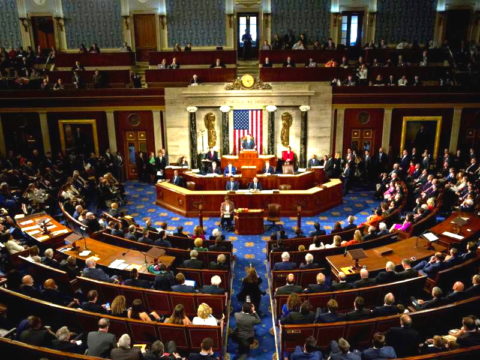The US Constitution has been successful because the founders based it on a frightful respect for the wiles and greed of powerful people. They examined governments ancient and modern and weighed their advantages and disadvantages. Their goal was to create a government that channeled human nature.
The ongoing quest for religious freedom under the moniker “separation of church and state” is not going well. There is frustration on both sides of the issue. That’s because we have an inherent contradiction in the words we are using. To sort this out we need a better understanding of human nature. When we get that right we can get the words right also and that will let us deal intelligently with the issues.
Words like “religious”, “believer”, “faith”, and their respective negatives are the problem. In our public dialog, we tend to use these in their narrow senses and that hides half the issues we are dealing with.
“Believer”, for example, means someone who believes in a deity, but the fact is we are forced, by the nature of our minds, to believe in something. To illustrate this simplistically, we either believe there is a God or we believe there isn’t one. In both cases, we are believers in the broad sense. The same can be said of the word “religious”. It is helpful to realize that to say that an atheist may argue his position with “religious vigor” makes perfect sense to us.
Now someone will say that this is not true for them — that they are not religious, and in the context of the popular definition of the word, they would be right. However, our definitions are hiding our inherent human nature. The next paragraph should serve to convince anyone who will honestly search his own mind and heart, that every human being has a religion — again, in the broad sense. Here’s the mental experiment. Pay attention to the flow and sequence of your thoughts.
Suppose I claim that this whole idea came to me because I prayed to God. If you are also a “believer”, that is all well and good. But if you do not believe in God, then your mind immediately seeks for alternate sources for my information. So you state your ideas about that and I ask, “Why do you think that?” and you answer, and I keep asking “Why do you think that?” Sooner or later your chain of thought will reach your fundamental beliefs about the nature of the world/universe we live in. Those are your beliefs: your religion, your world view.
The point is you end up with your beliefs and I end up with mine and we are both believers in the broader sense of the word. We are all equal in this thing. The conclusion is unavoidable.
So there we have the truth about so-called “separation of church and state”. It is a study in self-conflict. Based on that understanding we can apply the founding fathers’ way of channeling human nature for the common good. But first, we need to examine this just a bit more.
Here’s what just happened: we found out that every human opinion is based on a belief (or a religion, if you will). So we are all religious because we are all believers (stay in the broad sense here). We need one more step to connect with separation of church and state. That step is the nature and origin of legislation.
Laws are written with a goal in mind to promote some “good”. Hence, laws are based on someone’s judgement of “goodness” which comes from his worldview, philosophy or religion. I prefer to call them all religions, just to emphasize the fact that they are based on personal belief. So each law arises because of someone’s religion. The conclusion is unavoidable.
So “separation of church and state” is an oxymoron and the implied goal of building a wall between religion and law is inherently unattainable. This inherent but hidden fact explains why we have such difficulty implementing the separation goal. Every time we look at a particular issue, we want to set the wall in a certain place, but then facing a new issue we want to move it. Actually there is no place to put it on this field because the goal is inherently impossible to achieve. Any law designed to separate will violate the free exercise clause in some way.
This is another example of the danger of trying to create legislation based on abstractions.
On the other hand, the founders’ intent of coexistence and accommodation is still a worthy goal.
A search of the literature relevant to the first amendment shows that the founders had no such wall in mind, but rather an attitude of accommodation — that neither religion nor government should have any control over the other.
Not only is the attempt to build this wall doomed, in the attempt we are dividing ourselves against ourselves.
So, to sum up: the current paradigm, a separation of religion and law, is fatally flawed. Laws are written to promote some “good”. Hence, laws are based on someone’s judgement of “goodness” which originates in his worldview, philosophy or religion. (I prefer to call them all religions, just to emphasize the fact that they are based on unprovable personal belief.) Because all laws will be based on religious values, building a wall between religion and law is inherently impossible. This explains why separation laws will always violate free exercise. That violation makes separation law unconstitutional.
So let us put the matter to rest and stop arguing about whose rights are superior, or who is the most offended by insertion or removal of so-called religious items in the public square. There are no such superior rights.
- Face it! It’s a Storm! - April 22, 2024
- An Open Letter to Tucker, Glenn, Laura, et al. - December 15, 2023
- Pray Like a Mustard Seed - November 26, 2023




